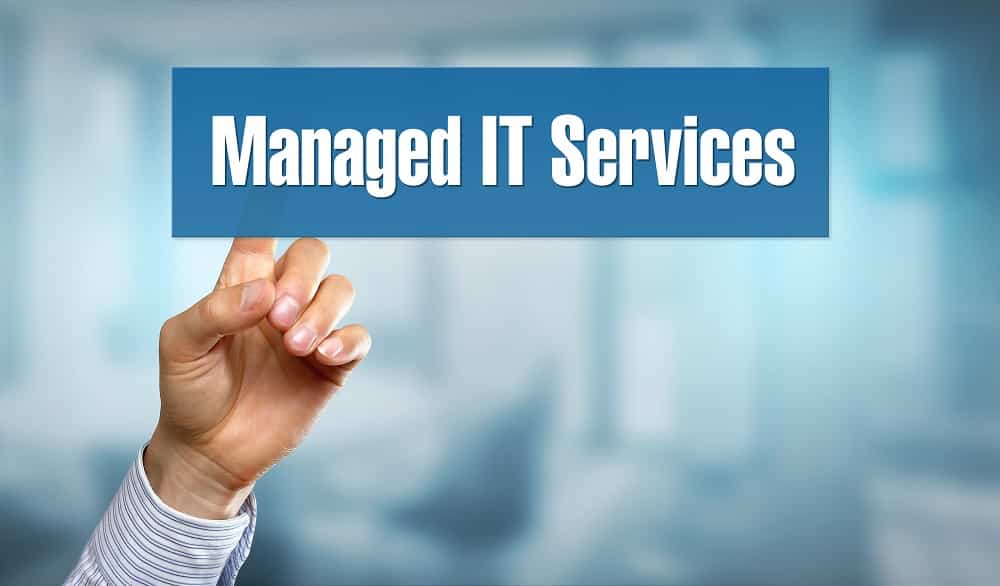The Pros And Cons Of Managed IT Services
Information technology (IT) has grown to the point that it underpins most business processes through automation, artificial intelligence (AI), and other IT solutions.
Businesses invest in IT for various reasons. One reason is that it improves efficiency. IT is also a tremendous source of competitive advantage for many businesses. As competition intensifies, firms are under increasing pressure to adopt cutting-edge technologies. As a result, the rate of technical innovation is increasing at a similar rate.
However, regardless of a business’s technology, IT must be appropriately managed to get the best results. Ideally, IT solutions must be streamlined and tailored to a specific business for them to work. The traditional approach would point towards hiring in-house IT staff; however, sometimes, this may not suffice. That’s where managed IT services come into the frame.
Managed IT services are solutions used by businesses wherein they outsource IT management services from another service provider that specializes in IT. These third parties are often specialists in a wide array of IT faculties, but you need to pick one based on what you’re looking for. Finding the right managed service provider (MSP) could improve an organization’s efficiency, resulting in cost savings. Plus, it frees up time for IT staff to focus on other tasks.
Below are some of the pros and cons of managed IT services. Read on!
Pros
1. It’s Cost Effective
Larger companies typically employ specialized IT staff because they can afford it. This might be beneficial in several ways. Because IT specialists are among the most in-demand, it’s normally costly for any organization to hire them. Also, if you run a small firm, acquiring them will be tough. Small firms might not have the resources to hire IT staff on a permanent basis.
So, it makes sense to outsource IT services since managed IT services offer the same, if not better, services for less money. You avoid spending money that would’ve gone toward the wages, perks, supplies, and benefits that your permanent staff would’ve been entitled to. Remember, one of the most significant components of every business’s operating cost is its payroll. Therefore, deciding to outsource IT support will undoubtedly increase your revenue.
2. Access To Skilled Professionals
Managed IT service providers frequently have access to a diverse pool of highly skilled IT professionals. They’ve received training in various specialized fields, including engineering, programming, automation, cloud computing, cybersecurity, and so on. As a result, they’re incredibly knowledgeable in the field they studied. Consequently, they’re most likely up-to-date on the newest trends and advancements in their fields of expertise. The capacity to provide clients with better solutions motivates them to keep abreast of the latest trends.
Managed IT service providers need to have this kind of depth in talents and skills because they usually have to deploy people with different skillsets and experiences to deal with various situations.
So, once you partner with a good MSP, you’ll automatically have access to a wide pool of talented IT experts, increasing your chances of getting top-notch services. Having two or three IT staff members for your business may be insufficient because of the limited range of specializations—fortunately, managed IT services can help with this gap.
3. Round-The-Clock Availability
Unlike permanent IT staff members, who typically work 8-to5 jobs, outsourced IT services are available around the clock. This allows them to monitor your company’s systems 24/7. As a result, they can discover problems fast and respond to them promptly. This ensures that there’ll be little to no downtime for IT maintenance. Downtime is never good for businesses because it can hurt the bottom line.
For example, consider if a cybersecurity breach occurs and a company loses its data. Its reputation may suffer as a result, and it may take some time to recover. However, having an on-call IT team 24 hours a day guarantees that your networks and IT infrastructure are secure, allowing any risks to be dealt with quickly.
Businesses that store sensitive information, in particular, can’t afford long downtimes. As a result, such organizations will benefit from outsourcing IT services.
4. Data Compliance Support
Many firms are concerned about cybersecurity, and rightfully so. Data privacy policies are now being implemented in several countries. These regulations are designed to encourage firms to strengthen their cyber defenses. A firm could be the subject of a cyberattack if it uses technology- and the Internet of Things or IOT-powered gadgets. As a result, these compliance regulations apply to such businesses.
Nonetheless, keeping up with these regulations may be tricky. That’s where managed IT services become of the essence. They can help to ensure data privacy compliance because they have professionals who are always up to speed on such matters.
5. Reduced HR Challenges
Recruiting talented employees isn’t easy. This is true regardless of any position you’re planning to fill. But, with IT roles, in particular, there could be a challenge since there typically aren’t many skilled individuals to fill IT positions. So often, human resources (HR) managers have trouble recruiting and managing IT staff. However, in this day and age, you have nothing to worry about as this can be addressed by a managed IT service provider.
In most cases, they can handle some of the HR activities by using integrated human resources information system (HRIS) solutions for the business. So, your HR team will only have to worry about other important things.
Cons
1. No On-Site Availability
When you hire managed IT services for your company, keep in mind that they’ll manage your IT remotely. This means that they won’t be on-site compared to having a dedicated IT crew. If your physical equipment fails, you or your on-site IT employees will be on your own, which could be a significant disadvantage at times. So, you have to know that you’ll forgo physical presence when you opt for managed IT services.
2. Inability To Build A Dedicated IT Team
Now, note that every business has a different business model. Perhaps, for those businesses that have a remote working model, hiring a managed It service provider will likely work. But, for other businesses, it may not.
For organizations with an established work and team culture, using managed IT services could present some issues because it doesn’t promote integration between the IT function and other departments.
External IT service providers may not understand the intricacies of corporate culture and other nuances of a business. Therefore, it isn’t easy to smoothly integrate the MSP with existing business processes and systems. This could, in turn, affect how effectively your hired service provider can help your business. Meanwhile, when a business has a dedicated IT team, it’s easier to build coordination since they can be trained to adapt to existing company policies, systems, and processes.
3. Limited Scope
Ideally, an in-house IT team should know a wide range of IT concepts. They usually specialize in many things related to IT, and in varying degrees. Managed IT service providers, on the one hand, typically specialize in specific areas.
Therefore, if a problem occurs, for example, and the solution is beyond their scope, you’re probably out of luck. You’re now limited to the services that they offer. Therefore, when choosing an MSP, you have to choose wisely.
4. Security Concerns
As soon as you partner with any MSP, you’re essentially putting yourself in a vulnerable position. Of course, legitimate managed IT service providers will ensure that they have security measures and policies in place to protect your company information. However, there’s always that risk that something unfortunate could happen. This could be a legitimate concern if an organization holds particularly sensitive information.
5. Longevity And Potential Downtime
While having one managed IT service provider is great for fostering good relations, relying too much on one service provider can be detrimental. For instance, if your managed IT service provider’s business closes for whatever reason, you’ll have to scramble to look for an alternative service provider. Once you’ve parted ways with them, they’ll depart with a knowledge base that’ll be hard to restore. This is especially true if you worked with them for a long time. Plus, it takes time to get accustomed to the way a business operates. Finding the ideal managed IT service provider isn’t easy. Nevertheless, losing a long serving MSP could cause disruptions in your organization.
Moreover, if, for any reason, the MSP doesn’t have technicians on hand, you’ll encounter some downtimes since there won’t be technicians to attend to your problems immediately. However, this can generally be avoided by looking for a reputable and well-staffed MSP.
Conclusion
As long as your business uses IT solutions, managed IT services could benefit you greatly. They’re a fantastic solution because they allow your business to get specialized services at a cheaper price. You’ll only pay for the services you receive, and that’s where most savings come from. Moreover, as can be seen above, managed IT services do have their cons. So, when making your decision, you should factor these in, too.
The final choice will be yours. If the pros outweigh the cons for you, then, by all means, use managed IT services.



























